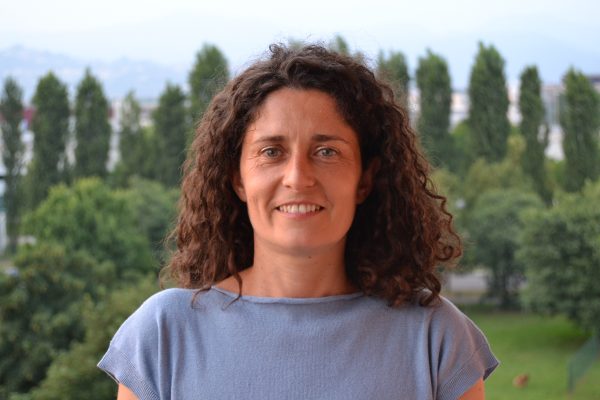
2007: PhD (Plant Biology & Production) – Università degli Studi di Milano, Milan, Italy.
2002: Master’s Degree (Plant Biotechnology) – Università degli Studi di Milano, Milan, Italy. (Grade: 110/110).
2016 – Present: Researcher, permanent position at IBBA-CNR in Milan, Italy. From August 2018 to August 2019, I was temporary relocated at the Rome Unit (Monterotondo Scalo, Rome, Italy). Participation to the scientific projects SURF and SPATIALS, funded by Lombardy Region, and to the scientific project BOBCAT, funded by CARIPLO foundation.
2014 – 2016: Senior Post-Doctoral Position at Department of Agricultural & Environmental Sciences (Production, Landscape, Agroenergy) – University of Milan, Italy. Participation to the EU scientific project n. 678168 “NEURICE – New commercial EUropean RICE (Oryza sativa) harbouring salt tolerance alleles to protect the rice sector against climate change and apple snail (Pomacea insularum) invasion” funded byEuropean Commission. Topic: SFS-05-2015 Type of action: RIA. Call identifier: H2020-SFS-2015-2.
2012 – 2014: Senior Post-Doctoral Position at IBBA-CNR in Milan. Participation to the scientific project “RISINNOVA: Integrated Genetic and Genomic Approaches for New Italian Rice Breeding Strategies” funded by AGER – Fondazioni in rete per la ricerca agroalimentare – Call “Filiera del riso”.
2009 – 2012: Researcher, temporary position at IBBA-CNR in Milan. Participation to the scientific project “Risorse biologiche e tecnologie innovative per lo sviluppo sostenibile del sistema agro-alimentare” funded by Accordo Quadro Regione Lombardia-CNR (Project 2).
2008: Post-Doctoral Position at the Rice Genomic Unit of Parco Tecnologico Padano in Lodi, Italy. Participation to the EU scientific project “EURIGEN – Genotyping for the Conservation and Valorisation of European Rice Germplasm”, funded by the European Commission – DG Agriculture and Rural Development (Action 049 of the AGRI GEN RES program).
2007: Research work period at Rice Genomic Lab of CIRAD Institute (Montpellier, France) in the framework of the INGENIO project.
2003 – 2008: Fellowships at IBBA-CNR in Milan. Participation to the scientific projects i) “Ricerca di fattori di resistenza a stress nel riso” funded by FINLOMBARDA S.p.A. – Sovvenzione Globale INGENIO and ii) “PlantSTRESS – Costituzione di una rete di ricerca su Genomica e Funzioni Geniche della Risposta delle Piante a Stress Ambientali” funded by Ministero dell’Istruzione dell’Università e della Ricerca – FIRB-Progetto Strategico Post-Genoma.
2002 – 2003: Fellowship at Istituto Sperimentale per la Cerealicoltura – Consiglio per le Ricerche in Agronomia in Bergamo, Italy. Participation to the EU scientific project n. QLK5-1999-1484 “EURICE – European Rice: transgenes for crop protection against fungal diseases” funded by European Commission.Topic: FP5-LIFE QUALITY.